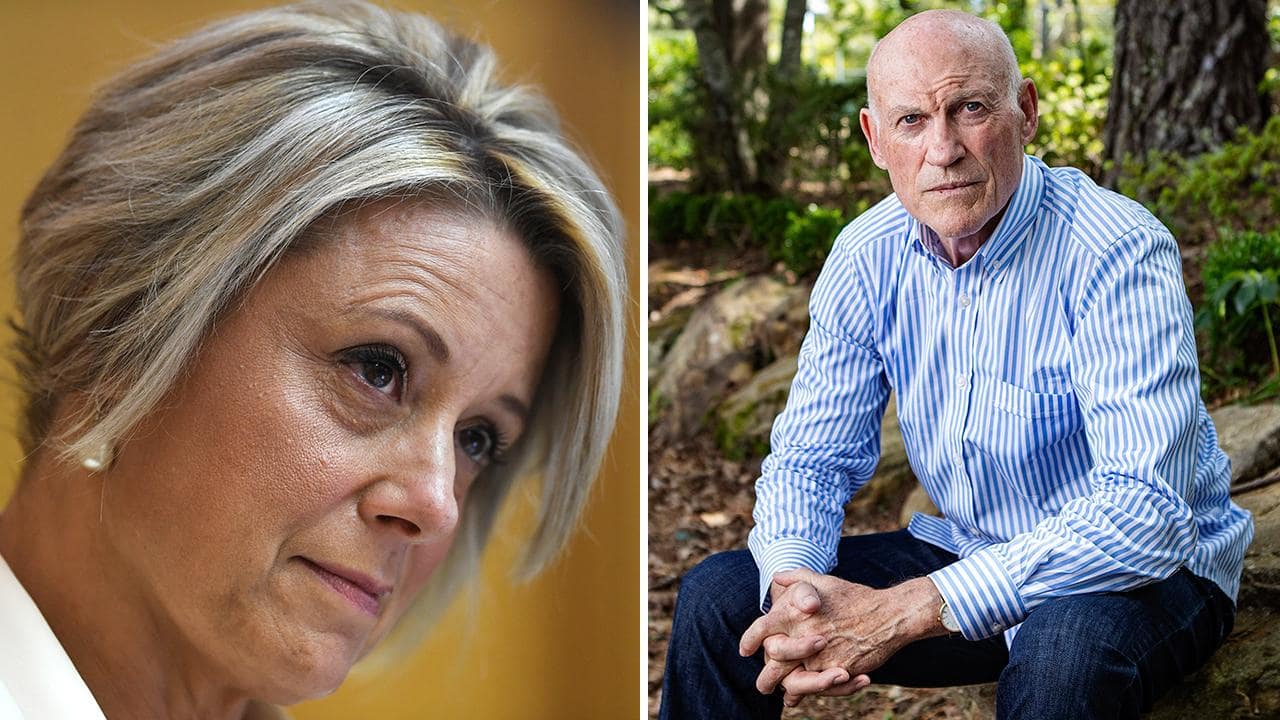
After having his criminal conviction quashed and being ordered to face a retrial, former NSW minister Ian Macdonald is taking legal advice on whether to call Labor senator Kristina Keneally to repeat her secret evidence that he says supports his innocence.
Mr Macdonald, freed from jail last month by the NSW Court of Appeal, said he did not wish to name the witnesses he would call if the Director of Public Prosecutions proceeded with a retrial.
But he pointed out that Senator Keneally and federal deputy Labor leader Anthony Albanese had both provided secret evidence to the NSW Independent Commission Against Corruption that did not feature in the ICAC report to state parliament that led to his conviction for misconduct in public office.
He said their evidence tended to support his argument that he had not engaged in criminal wrongdoing by issuing a coal exploration licence to Doyles Creek Mining, a company chaired by former mining union leader John Maitland, in order to create a “training mine”.
In an interview with The Australian, Mr Macdonald called for an inquiry into what he said was the suppression of exculpatory evidence by ICAC in his case and in a series of other matters.
“A substantial amount of germane information had been withheld from the public inquiry,” Mr Macdonald said. “This information went to the heart of the narrative that had been presented by the ICAC senior counsel and indeed in the final report that was produced.”
ICAC’s report accusing Mr Macdonald of corruption prompted the NSW government to cancel the Doyles Creek licence while refusing to compensate NuCoal Resources, which had bought Doyles Creek. ICAC had urged the government to compensate innocent parties.
NuCoal chairman Gordon Galt said the Court of Appeal’s ruling quashing Mr Macdonald’s conviction meant there was now “a hugely strong case, morally and legally, for the NSW government to get on with making whatever legislative changes they need to make and discuss appropriate compensation with NuCoal”.
Mr Macdonald said that since being released from prison last month he and his wife, Anita, had been working as cleaners to pay their bills.
His conviction and 10-year sentence had prompted the NSW government to strip him of his parliamentary pension.
He is in debt for legal fees and is uncertain about how to pay the cost of a retrial.
“But since the decision of the appeals court and my release from prison, a lot of people have expressed support and want to help me,” Mr Macdonald said.
Before the Court of Appeal’s ruling, Senator Keneally had publicly distanced herself from Mr Macdonald. But in March last year the existence of her secret evidence was disclosed in the NSW Legislative Council.
That evidence, read into Hansard by the Liberal Party’s Peter Phelps, shows Senator Keneally — a former NSW premier — believed Mr Macdonald had not been obliged to seek cabinet approval before issuing the exploration licence.
“Keneally says exploration licences don’t go to cabinet — which is precisely what I have said,” Mr Macdonald said.
“They did not call Keneally so her evidence supportive of me — exculpatory of me — was not presented,” he said.
ICAC had also failed to take evidence in public from a departmental officer who had told the commission at a secret hearing that miners trained at a training mine would be safer workers than those whose training used “virtual reality”, Mr Macdonald said.
Mr Maitland’s conviction as an accessory was also quashed last month and, like Mr Macdonald, he is waiting for the DPP to decide whether to seek leave to appeal to the High Court to overturn the Court of Appeal’s unanimous decision.
Chris Merritt, Legal Affairs Editor
The Australian
WTF (used with permission)
